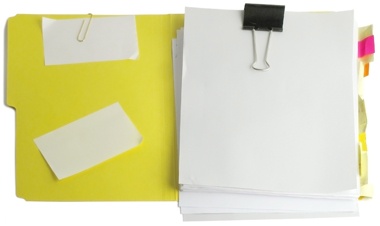There are plenty of reasons you may need to check your copies of your employment information even when you aren’t at work: if you’re out with the flu, that memo on sick leave isn’t going to do you much good in your office. The same goes if you get a better job offer and you want to check your current contract. And if the worst happens and you lose your job, you may not be able to get copies of all the files left in your desk.
Documents That Belong In Your Home Personnel Folder
Employment Contracts: While not all employers require written contracts, many do. They can take the form of formal offers of employment, letters of agreement or other documents — but no matter what form it takes, you should have a copy at home. While many people feel comfortable shredding their contracts as soon as their employment ends, it’s worth keeping your contract around for quite a bit longer. At the minimum, you should keep a contract through the expiration of any clauses (i.e. non-compete clauses), although it’s reasonable in most cases to keep copies of your contracts indefinitely. Benefits: From your parking space to your dental insurance, your benefits package is full of important information. As your benefits technically make up a portion of your compensation, it’s worthwhile to keep a copy on hand — and make sure that you’re taking full advantage of what your employer offers you. Furthermore, because your benefits can affect your home life — health insurance, anyone? — being able to consult that information at home can be crucial. Performance Reviews: In theory, performance reviews are your employer’s way of telling you where you’re doing a good job and where you can improve. In reality, most companies treat performance reviews as an easy way to determine promotions and raises. Keeping track of such information can help you find an opportunity or two with your employer. Payroll Records: If things go south at your company and you find yourself in a position to file for unemployment insurance, you’re likely to be asked for certain payroll records. If there’s a problem processing your claim, you could be asked for several years worth of documentation. They’ll also want at least some of your tax records — in the U.S., most states require at least a copy of your W-2 form. The requirements may differ dramatically in other countries. Updates: All those memos and updates that get passed around the office regarding your health insurance, reporting times and anything else your supervisor or human resources manager comes up with seem like great wastepaper liner. But a surprising number of them are worth keeping, at least in the short term. It requires discretion to determine which updates are worth filling, but generally those affecting either your compensation or your responsibilities are worth keeping. Job Description: Your job description may change during your time with your employer, but it’s important to keep a copy of each version. It’s not so that you can argue against doing a task just because it’s not in your job description — but if you’re routinely taking care of tasks above your pay grade, bringing a copy of your job description to your supervisor might help you get a raise. If possible, it’s worthwhile to keep a copy of your resume at the time you receive each job description so that you can show your progression in terms of skills and experience. Documentation of Problems: There are problems in every office situation, and some of them may require documentation. If, for instance, a co-worker is behaving inappropriately, you may feel the need to keep a record of the issue. Keep a copy of that record at home — in some cases, it might be worthwhile to keep the only copy at home. Such records can actually cause problems if they’re found laying around the office. Your Actual Personnel Record: In most places, you have a legal right to take a look at your personnel record any time you care to march down to the Human Resources department. You might consider asking to do just that — frame your question in a way that won’t lead those HR folks to file you in the back of the drawer when you’re done, though.
Keeping Track Of All The Paperwork
All these records can add up to a nice stack of paper. Ideally, you’ll go out and buy a bunch of folders and a filing cabinet — but that may not be a realistic option. Instead, any neat organization system that allows you to easily access any papers that you’re after works just fine. Tabbed folders and a box may be the best solution for you (as long as you store it somewhere dry). You’ll want to hang on to most of this paperwork for a while. If there’s a problem with your employer (or former employer), you might be asked to provide documentation reaching back several years. If you haven’t run into any problems after four years, you’re generally considered to be in the clear. That’s the same length of time your employer is required to keep documentation. If you have any other suggestions for documents that need to go in a home personnel folder, please share them in the comments.
